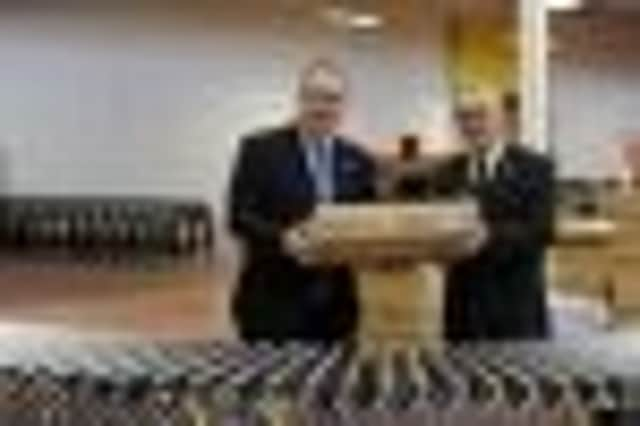Eddie Barnes: Be careful what you wish for, Mr Salmond


As recently as 2009, Alex Salmond was telling Spanish interviewers about the problems with the Pound. His spokesman said the SNP had “always recognised the benefits of Euro membership.” Contrast this with Finance Secretary John Swinney in the early part of this year, saying he “cannot foresee the set of circumstances” that would lead a Scottish Government to call a referendum on joining the euro.
The sudden twists and turns of the economic crunch have made fools of plenty of wide heads over the last five years, but the looming challenge facing both Messrs Salmond and Swinney – fresh from the mess over EU membership – is how to ensure their plans to keep the Pound do not end up in a similar fix.
Advertisement
Hide AdAdvertisement
Hide AdComing up in the early part of next year, the government’s Fiscal Commission will report back with initial findings on how it will all work. It has been exchanging letters with the Bank of England, Salmond claimed last week (although the Old Lady disputed the claim of a “dialogue). The commission is likely to flesh out the idea of a “fiscal pact” which Scotland would sign up to, placing limits on its borrowing and spending. Swinney seems particularly keen on the idea.
To protect the UK’s position of lender of last resort under this arrangement, the Finance Secretary replied back eagerly: “But you’re preaching to the converted, Lord Chairman.”
The strategy will be familiar to SNP watchers: no horses will, so the hope goes, be scared off by the sight of Swinney, Salmond and their economists reassuring people over the worthy responsibility with which they aim to husband Scotland’s resources. Indeed, say economists such as Professor Brian Ashcroft, that’s just as well, given the fact that a deficit-running Scotland would have to gain a reliable reputation very quickly in order to convince the markets of its probity.
But could it be a case here of the SNP needing to be careful what it wishes for? In an interview with the BBC earlier this year, the straight-talking Mr Beveridge made no bones about the kinds of limits that would need to be imposed. “There would have to be stringent rules,” agreed with London, he acknowledged.
There would be, he said, scope to “borrow within reasonable limits”. Salmond claimed that the fact Scotland was “less broke” than the entire UK last year, is evidence of wiggle room.
But the limits likely to be set out by Beveridge and Co will be restrictive. And the danger, therefore, is that, in seeking to reassure investors about the country’s financial probity, it only begs the question about what exactly is the point of it all.
No wonder those days when Euros rained down like confetti on the continent’s capitals seemed so alluring.